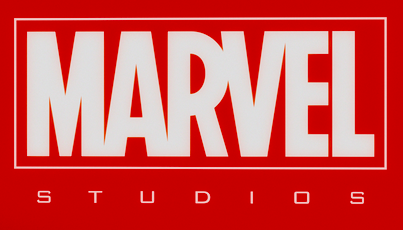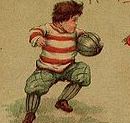
After long absences from the blog like this, I normally start off with some sort of poking-fun-at-myself comment like, “Hey, looks like I forgot about my blog!” Well, this time I can actually say that. With our in-progress move to Charlotte taking up quite a few brain cells, not to mention actual trips to Charlotte for weddings, video work, and Council meetings, I truly did forget I actually had a blog out here.
And I must say that I suspect that the days of this blog are numbered, as much of the content-creation work I will be doing in Charlotte will begin to take the place of one of the things I have informally used this blog to do: keep me writing and create an opportunity for my congregants to stay in touch with me during the week, even if I am just writing about my kids’ innovative chess techniques. (On display here and here, by the way — beware the Power Pope!)
But, today I return to my poor neglected blog to get three things off of my chest — some social commentary born of observations from the growing Marvel Universe onscreen (technically, the Marvel Cinematic Universe). For those who don’t get the geek-speak (though, increasingly normal-speak), that refers to the fictional universe being created to display, and make money from, Marvel comic book properties on the big screen (and the small screen — looking at you, Agents of S.H.I.E.L.D.).
And I should make a couple of confessions and pre-comment comments here at the beginning. For one, this post is not a recommendation of any of these fictional works. I find that many could have good cause in their conscience not to partake of anything related to any such movies. Still, the films are looming large in the public eye, and if something has the public’s attention and can be used to make helpful, godly observations, I’m going for it. No one actually has to see the movies to appreciate the points I want to make, any more than one needs to actually read Adolph Hitler’s Mein Kampf to consider someone’s analysis of the book and what it might say about current trends in society.
Secondly, these comments aren’t really going to be about what happens in the movies as opposed to how our culture has interacted with the movies and what that interaction says about us. The characters in the movies are fictional. No one should emotionally invest in something that does not exist. But the people around us? Very much real and alive, and what can be learned, hoped, dreamed, regretted about real people is very important, indeed.
OK, on to the comments I want to make. Not many — just three.
(1) The incredibly stupid and immoral hatred some feminists have expressed concerning the value of motherhood in the recent Avengers: Age of Ultron movie.
The writer and director of the recent Avengers cash cow, Joss Whedon, is normally someone who likes writing tough, tail-kicking parts for women — just one more person in this world who is promoting the terrible idea that women can fight, punch, kick, etc. as hard as men. The recent Avengers flick is no different, with the Black Widow character, portrayed by Scarlett Johannson, being your standard female repentant-super-assassin-turned-good. Nothing really new here.
Except there was something new. (Spoiler alert, by the way.) In the movie, the character is reflecting on what had been done to her when she was young to help make her a government killing machine, and she laments that those who reared and trained her also sterilized her so that she would not be distracted by the possibility of having children and becoming a mother, not unlike ancient kingdoms did with male servants, making them eunuchs. The character admits a sadness that she would never be able to have children.
Bring on the feminist hand-wringing.
Well, that’s not exactly true. Joss Whedon apparently considers himself a feminist, and his constant stream of unrealistic super-tough female characters should establish his pro-feminist “street cred” according to many. Yet, in actually writing about a female character who laments that her ability to conceive and bear children was taken from her, he is perceived as having committed some great crime against the feminist cause. The angry outcry was great (imagine rants to the effect of “How dare he define women by their ability to make babies!”), and by some disputed accounts (included disputed by himself) the backlash drove him off of Twitter.
This is ridiculous on so many levels, but let me just focus on two: For one, it is insane to call oneself a feminist and to complain when a woman — portrayed as being tough-as-steel and an equal to all the men around her — laments that her ability to have children was taken from her against her will. Why in the world would someone complain about such a thing. Would they have preferred that she said, “You know, although they actually robbed me of one of the most gifts and powers a woman has in the world, but I don’t care — in fact, I’m better off”? Or even, “Yeah, they took my ovaries. No big whoop.” How ridiculous. For people who love to protest that the government should stay out of women’s wombs to protest that a female character in a movie objects to having a government ignore that and forcibly curtail a woman’s reproductive rights is completely illogical. I thought it was just that, “reproductive rights,” that they were defending? Apparently, they are only defending them if “reproductive rights” means “the right not to reproduce.” That would certainly explain how so many of them seem to hate large families (calling such mothers “breeders” and such). Crazy.
The second point about this is how utterly ungodly such complaints are. Being the one through whom the entire human race is perpetuated is one of the gifts and privileged burdens God has given women. There is a reason Adam honored his wife by calling her Eve, “the mother of all living.” To wring one’s hands and “sigh and cry” that a fictional character dare to complain that she was sterilized against her will is perverted. It is just one more example of the world being upside down. Really: Absolutely perverted. Let a fictional woman be the epitome of a “super woman” — able to fight with the toughest of men and beat them — and she is praised, but let her lament the loss of one, single, beautiful aspect of being a woman, and suddenly she is anathema and an enemy against all womankind. Really — satanic.
(Side note #1: I know that part of the rancor was also spurred by the very positive image of a pregnant wife and happy family behind the Hawkeye character, setting up the contrast between the wife and mother, who seemed very fulfilled, and the Black Widow character, who was damaged and conflicted. But if I don’t limit my rant a little bit, I will never move on, will I?)
(Side note #2: The irony in all of this — Scarlett Johansson was actually pregnant during the movie’s filming.)
(2) Captain America’s commitment to doing the right thing over success or even survival.
I could go on and on about this one, because I think it reflects one of society’s great faults — infecting even mainstream Christianity at an increasing rate, as evidenced by the growing “Christian” acceptance of homosexual “marriage.”
At one point in the new Avengers movie, Steve Rogers (Captain America) and Tony Stark (Iron Man) are debating the virtues of actions Stark had recently taken — which were independent and against the wishes of the rest of the team, though taken with good intention. Rogers takes him to task and says it was wrong for him to do that — that they should work together. Stark counters that if they stick with such a value then they will lose. And Rogers says, We’ll do that together, too.
I’m sorry, but that sort of sentiment is sorely absent from our culture: The idea that right is right and wrong is wrong, and we do the right thing regardless of even extreme consequences. (Well, I shouldn’t say that, I suppose. There are a number of things that today’s new moralists might be willing to sacrifice everything for, but, without going into too much detail, let me say that there is a very different spirit there.) John Quincy Adams is believed to have said, “Duty is ours; results are God’s” and implicit in that statement is the understand that you do your duty, regardless of the results. If it is optional, it isn’t duty.
Rogers’ statement in the flick that even if we lose, we lose together — that it isn’t worth doing the wrong thing, even if it means we lose — is, IMHO, very counter to the culture around us (and, I admit, the examples which come to mind for me are likely not examples that would be celebrated by many of those who made the movie).
Consider the Boy Scouts. I admired their stand against accepting homosexuality as lifestyle to be embraced as opposed to being a perversion to be acknowledged as such — at best, a condition to help people avoid and resist. As an institution standing for values and ethics, they took an unpopular stand on those values and ethics, and they recognized that one cannot repeat the Boy Scout Oath to keep oneself “morally straight” while also practicing homosexuality. (And, of course, any sexual activity outside of marriage is immoral, including heterosexual acts.)
What I saw in the Boy Scouts, as the public disapproval mounted and boycotts ensured, was a willingness to see the Boy Scouts destroyed before there would be any giving in. I saw that they were willing to allow the organization to be disbanded before they gave ground on their moral stand, in a culture that desperately needed such public, moral stands.
And, well, that didn’t last, did it? They took their moral stand until they didn’t.
We currently see individuals and businesses taking such stands — against not only civil lawsuits, but against state governments. Facing the loss of their livelihoods and tens of thousands of dollars in fines for not being willing to violate their consciences and celebrate homosexual “marriages” with their gifts and talents as photographers and artists, they stand and say, “Even if we lose and even if you destroy our businesses and our ability to earn and support our families, we cannot but stand here. We will not move.” Good for them. I see that sort of sentiment in Captain America’s statement (even if the industry that wrote that line wouldn’t agree with the examples I am using), and I wish there were more of it coming out of Hollywood.
It’s the sort of stand that the rest of us had better gear up for. Some values really are worth losing over.
(3) Marvel vs. DC — “Going dark”
There is quite a bit of pop culture buzz out there about the clear difference being seen in Marvel movies (in particular, the Disney-owned Marvel movies) and DC movies.
[Aside: For the uninitiated, Marvel and DC are the two major comic book publishers. Marvel makes the Avengers, Spider-Man, etc. and DC makes Superman, Batman, Wonder Woman, etc. They have been considered rival publishers for decades. As a pre-teen, while I was aware of DC publications, I was very much a Marvel fan. I actually read Stan Lee’s letters in the comics, proclaimed “Make Mine Marvel,” and totally get it when someone exclaims “Excelsior!” (Please read all of that in the context I am about to provide, below.) The old comic book rivalry is turning into a movie rivalry, as Marvel movies featuring Marvel superheroes are doing box-office battle with DC movies featuring DC superheroes. This part of the post refers to this “conflict.”]
I freely admit that I wasted a sadly vast part of my youth on comic books, understanding enough about how immersive that world can be to decide I do not want my children to be a part of it. My old Marvel Godzilla comic books are all they have read of that industry, and we’ve talked about why I’d rather they never take up the comic book habit. Don’t get me wrong — my children aren’t perfect in the media-feeding department, and neither is their dad. But that particular vice — comic books — is one we have successfully avoided in their youth.
And my revulsion toward allowing them to get into comic books was based on my own youth and experience in the late 1970s and early 1980s. However, that revulsion is only enhanced by what comic books became not too long after I stopped participating, and what they became could be summarized in one word: Dark.
Some people trace the beginning of the dark trend now seemingly everywhere in comics to the 1986 publication of Frank Miller’s Batman story “The Dark Knight Returns.” I don’t know that that is true — I can see the beginnings even in my day earlier in the decade, but, regardless, comic books became, on the whole, nastier, grittier, uglier places to be. Again: Darker.
Gone was the “Boy Scout” hero (will we lose that adjective? ) who refuses to kill his foe — essentially, a Lone Ranger with super powers. In came the gritty, dark anti-heroes of questionable morals and ethics. Bad guys became more sadistic and horrifically cruel. Grotesquely violent. Gone were heroes like young Peter Parker, who struggled to understand the right thing to do on occasion, while still understanding that there was a right thing to do. (As a teenage boy struggling to understand how to do the right thing, myself, I got that.) In came the “heroes” who observe with jaded and cynical eye that there is no real “right” thing, and that sometimes we have to be bad, go to dark places in ourselves, etc., etc. ad nauseam.
Now, we have movies. Marvel has become known for bright, humorous fantasies, in which characters are still inherently virtuous — difficult pasts, yes, but overcoming those to do the right thing and stand for right things. Their characters make jokes and inhabit a world that is a pretty pleasant place to be in when the universe isn’t being threatened by aliens or whatever.
DC, on the other hand, has become known for darker visions, in which even the heroes have a dark edge to them. Batman seems always on the edge of darkness. Even “Boy Scout” Superman (there’s that adjective again) gains such an edge in the new movies. When young Superman’s dad actually suggests that perhaps the young lad should have refused to save a school bus full of children from drowning rather than risk revealing his powers, the movies declared their dedication to a different sort of moralizing. A darker moralizing. Some will claim that such discussions and comments simply reflect and admit the existence of hard questions, but the problem is that it has lumped easy questions into the hard question category. That doesn’t reflect great moral maturing; it reflects a great moral confusion.
There was quite a bit of chatter on the Internet when the rumor spread that DC had made a rule across its productions that there was to be no joking at all. After all, these are “serious” movies. And someone showed me recently how the recent Superman had been artificially processed before being released so as to remove all bright colors, making even the very color palette of the flick a tool for enhancing the dark, monotone, moody feel.
Many have wondered when the Marvel movies, too, would follow suit. After all, dark is “the thing.” Most figured that the plan for Marvel was to start their movies nice, happy, and bright, but — eventually — once you have reeled everyone in, “go dark.”
To their credit, they say there are no plans to do that. Marvel head honcho, Kevin Feige, is reported on Reddit to have said that the Marvel Cinematic Universe (MCU) will never “go dark” in the movies:
“There is no dark turn in the MCU. He says every year fans come up to him and ask him if this movie is when the MCU goes ‘dark’ or takes a ‘dark’ turn. He said while the trailers may seem ominous or have a sense of impending doom, the movies do not have that feel, and will not. He said he ‘Hoped people would catch on by now’ – there will be no giant dark turns in the MCU where it then continues to head in that direction. The humor is in the DNA of the movies, there are no plans to change that.”
Movies aside, what I care about is what it says about the culture. And I think that the dark/not dark DC/Marvel difference here is interesting.
On one hand, people these days seem to want “dark.” There is a reason that people keep asking Feige when the “dark turn” is going to happen. It’s expected, and many people want that sort of darker, edgier content. We see similar desires seeking to be satisfied in television programming such as the CSI shows and crime dramas, where the perpetrators are increasingly terrible and sadistic. (I saw enough of one episode of “Criminal Minds” to realize I never want to see another one, ever.)
On the other hand, an encouraging other hand, there is still something in people — at least some people — who don’t want “dark.” Even putting aside the insane amount of money the first Avengers movie made, it was a comment in one of the reviews that got my attention. I can’t find it, otherwise I would link to it, but the reviewer commented about the consistent applause scene in that movie: When all of the heroes are gathered together for the first time in a circle to battle their overwhelming foes. The camera circles, the music swells, and the audience is treated to a moment they have been cinematically manipulated to appreciate for the previous hour-or-so. But the fact that the audience actually applauded and cheered at that moment grabbed the reviewers attention. Actually, it grabbed many reviewers’ attentions. As one noted, everyone was applauding a scene that most all of them had already seen in the trailer for the movie.
Actual applause seems rare in movies these days — at least to me. (Admittedly, I don’t actually see too many movies.) I remember as a kid seeing one of the Star Wars movies and hearing my mother applauding in the theater — the only one applauding and, of course, totally embarrassing me. (Of course, now I wish she were still here to embarrass me in the movie theater. Thank you, Father, that no one is gone from us forever.) Yet here were these normally jaded, cynical moviegoers, unabashedly applauding this scene in the first Avengers movie.
The reviewer who grabbed my attention explained his own opinion about the matter. He said that in a world full of darkness that has taken over even the heroes of our fantasies, there was something wonderful about seeing the good guys assemble together, overcome their differences, and act like good guys.
I think he was right. At least, I hope he was right.
Some say art should reflect reality back at us and cause is to meditate on it. Whatever. I’m not saying that there can’t be benefit to that, but the idea that movie blockbusters are there to do that is pretty ridiculous on the surface. History seems to show, at least to me, that art does less reflecting on reality and more shaping of it. Rather than becoming a mirror in which we can reflect and change, it becomes an amplifier, magnifying those qualities it depicts and reducing those it ignores. Boys N the Hood may have sought to make parts of gang life seem terrible and inglorious, but there was a reason, as police told me and some assembled teachers back in the 90s, that whenever they raided gang homes that they always–always–found that movie in the home, often playing in the VCR at the time. It caused fewer to reflect on the dangers of such a life than it caused to see it as something glamorized and something worthy of being glamorized, which is different, however subtly.
The world is dark, to be sure. But there is a reason that Philippians 4:8 says, “Finally, brethren, whatever things are true, whatever things are noble, whatever things are just, whatever things are pure, whatever things are lovely, whatever things are of good report, if there is any virtue and if there is anything praiseworthy—meditate on these things.” What we reflect on tends to be what we become.
And the idea that, as much as people clamor for “dark and gritty,” they responded, perhaps despite themselves, to a cheesy, hopeful moment where good guys are actually good is encouraging to me.
Don’t get me wrong: I’m not blind. I’ve seen ads for Marvel’s Daredevil series on Netflix and have read the reviews. I’m not even interested. If there is money to be made in grit and guts–in “dark”–then expect companies who want money to follow that money. And I’m also not deluded to think that what qualifies at “not dark” today is still, in many ways, quite dark. Sometimes the “not dark” material stands out against the “dark” material simply because it is “not as dark.” (I know: A lot of repetitious uses of “dark” in those sentences. Forgive me some lazy blogging…)
But, still, in a world of dark clouds (there’s that word again!–expect it a couple of more times, at least…), please don’t begrudge me one silver lining, however thin it may be and however quickly it may be receding. As the world becomes more and more obsessed with the perceived glamor of “evil” and the appeal of dark worlds and dark thoughts, the fact that at least one movie company sees profits in avoiding such a turn, however indirectly, is encouraging. Don’t know that it will last, but it’s still encouraging.
And, to wrap up: Again, none of this is meant to endorse or encourage anyone to actually see these movies, any more than Paul’s use of the “Unknown God” idol was meant to encourage idolatry or his use of gladiatorial imagery in multiple passages was meant to glamorize or approve of being entertained by watching slaves and prisoners fight to the death in the arena.
But as these sorts of flicks loom larger and larger in the culture — and as long as they make money, they will continue to loom large — they become yet another way to reflect on that culture. Sometimes the culture reveals itself best while it is occupied with trying to enjoy itself.
















